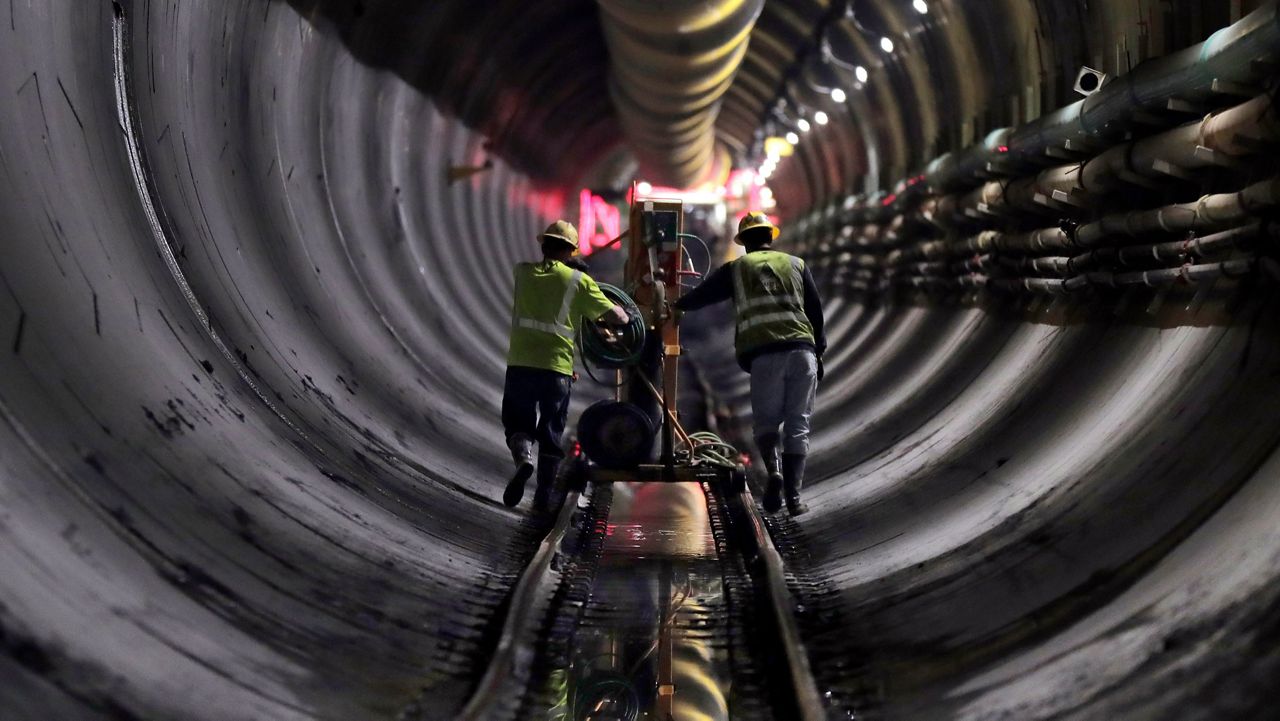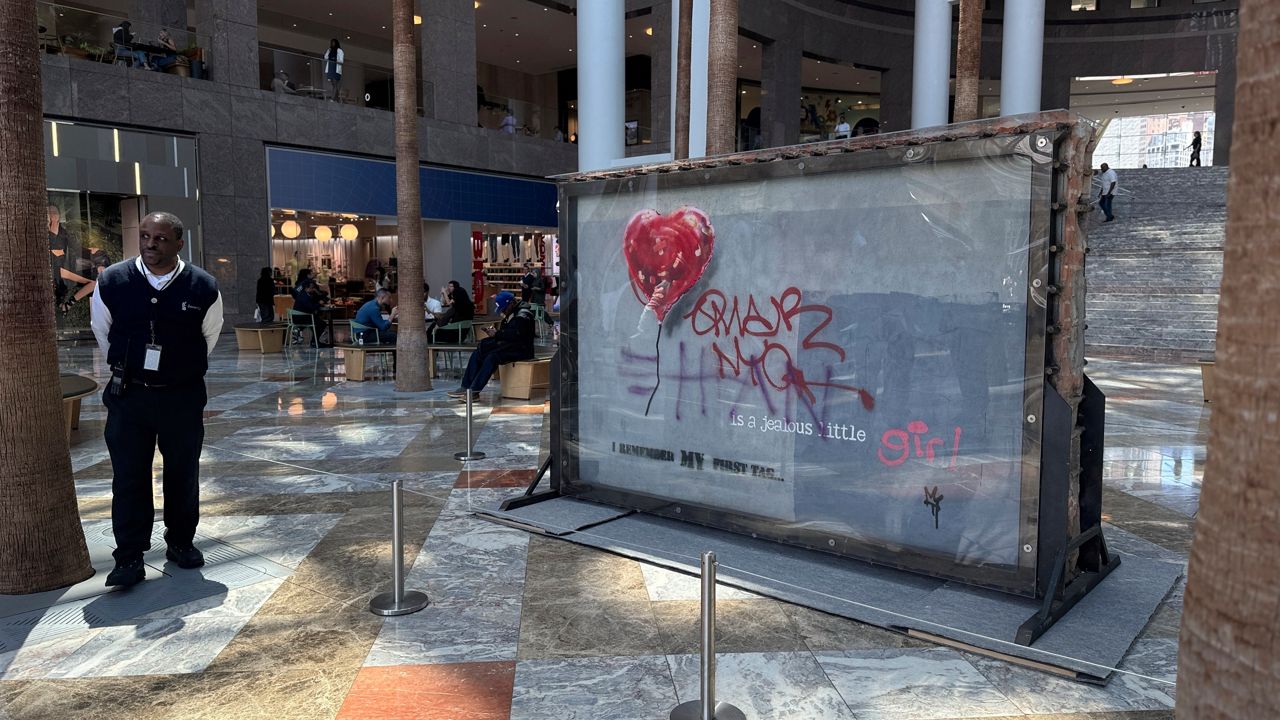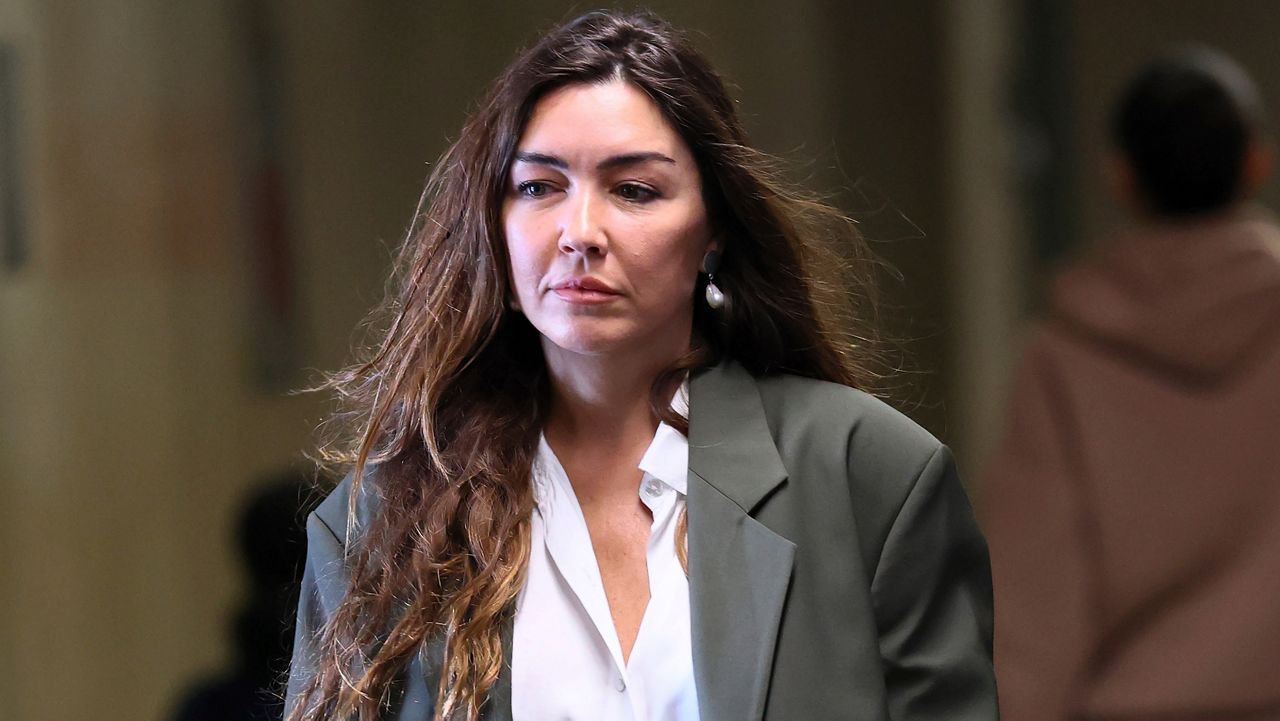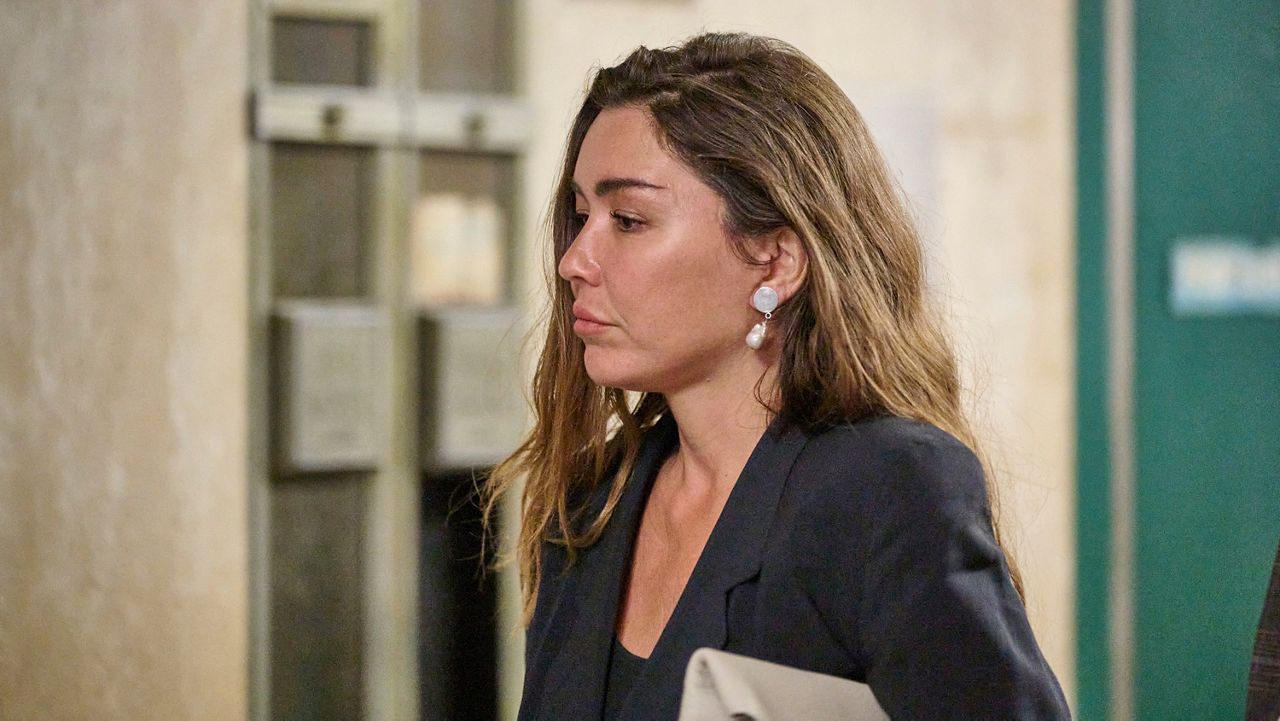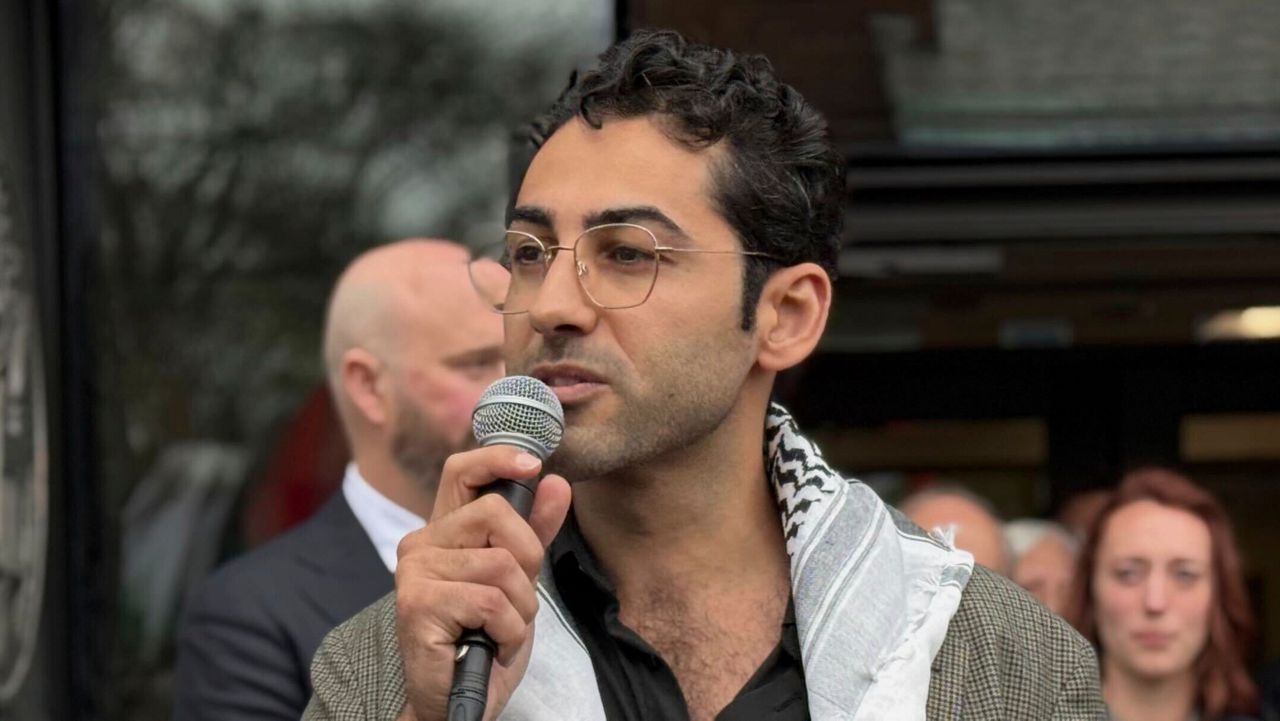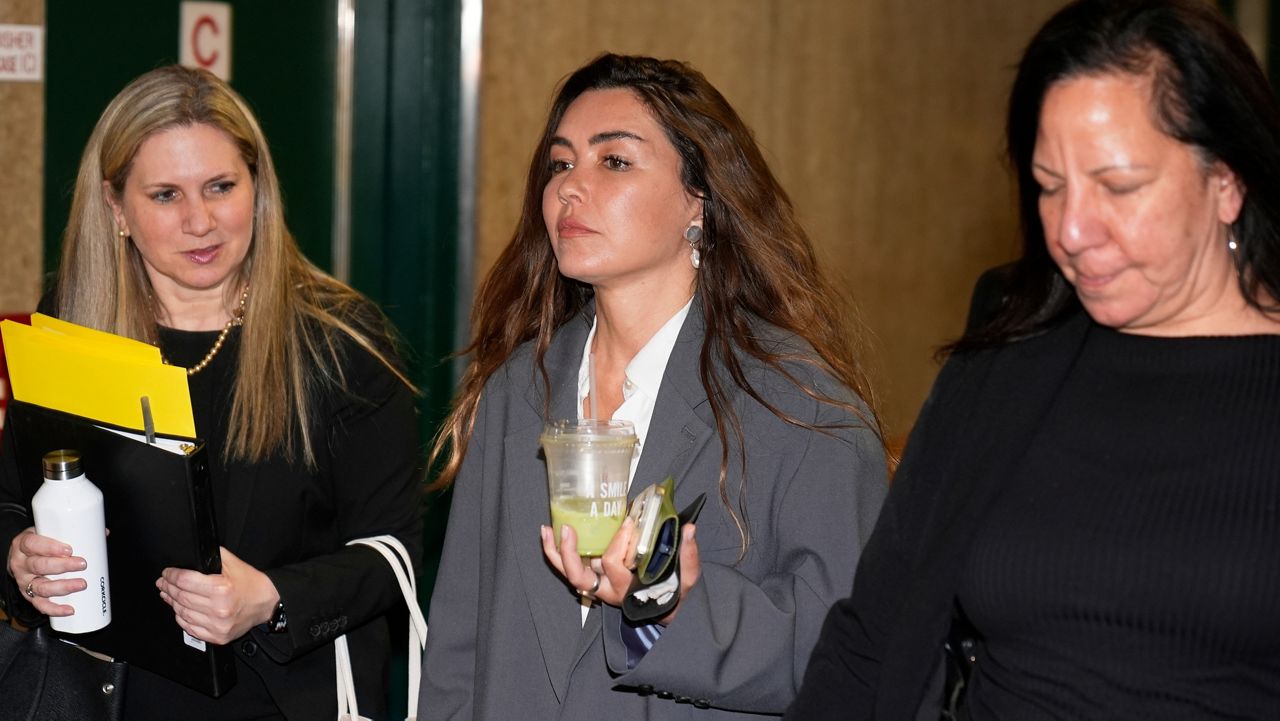New York City officials assured residents that water flowing from their faucets will continue to be perfectly safe — even if it might taste a bit different — as they announced plans Monday to address massive leaks in the supply system by shutting down part of a main aqueduct for the winter.
The temporary shutdown this week of a stretch of the Delaware Aqueduct in upstate New York, which carries water from the Catskill region, means the city will be more reliant on reservoirs in the northern suburbs. And that could mean people with more sensitive palates could notice changes in the famously crisp taste of New York City water.
What You Need To Know
- New York City officials assured residents that water flowing from their faucets will continue to be perfectly safe — even if it might taste a bit different — as they announced plans Monday to address massive leaks in the supply system by shutting down part of a main aqueduct for the winter
- The temporary shutdown this week of a stretch of the Delaware Aqueduct in upstate New York, which carries water from the Catskill region, means the city will be more reliant on reservoirs in the northern suburbs
- A section of the Delaware Aqueduct is being drained as part of a $2 billion project to address profuse leaks beneath the Hudson River
“New Yorkers should know that your water is going to taste a little, slightly different. Some of you are not going to pick it up,” Mayor Eric Adams said before sipping a bit of water at a news conference announcing the work.
Adams called it "perfectly safe, good water.”
A section of the Delaware Aqueduct is being drained as part of a $2 billion project to address profuse leaks beneath the Hudson River. The temporary cutoff has been in the works for years, with officials steadily boosting capacity from other parts of the city’s sprawling 19-reservoir system.
The aqueduct is the longest tunnel in the world and carries water for 85 miles (137 kilometers) from four reservoirs in the Catskill region to other reservoirs in the northern suburbs. Operating since 1944, it provides roughly half the 1.1 billion gallons (4.2 billion liters) a day used by more than 8 million New York City residents. The system also serves some upstate municipalities.
But the aqueduct leaks up to 35 million gallons (132 million liters) of water a day, nearly all of it from a section far below the Hudson.
The profuse leakage has been known about for decades, but city officials faced a quandary: They could not take the critical aqueduct offline for years to repair the tunnel. So instead, they began constructing a parallel 2.5-mile (4-kilometer) bypass tunnel under the river about a decade ago.
“It’s taken us 20 years to plan for this project because the scale of this project is so massive,” said environmental Commissioner Rohit Aggarwala.
The new tunnel will be connected during the shutdown, which is expected to last up to eight months. More than 40 miles (64 kilometers) of the aqueduct running down from the four upstate reservoirs will be out of service during that time, though a section closer to the city will remain in use.
Other leaks farther north in the aqueduct also will be repaired in the coming months.
Deputy Commissioner Paul Rush said the work was timed to avoid summer months, when demand is higher. The city also has spent years making improvements to other parts of the system, some of which are more than 100 years old.
Capacity has been increased for the complementary Catskill Aqueduct, and more drinking water will come from the dozen reservoirs and three lakes of the Croton Watershed in the northern suburbs. The heavier reliance on those suburban reservoirs could affect the taste of water due to a higher presence of minerals and algae in the Croton system, according to city officials.
“Just as different brands of bottled water taste a bit different, so do our different reservoirs,” Aggarwala said.
City water, he said, remains a safe and healthy choice.
“I don’t know that that many people will actually notice a difference in taste. It is just possible,” he said. “And so we want to make clear to you all why and what’s going on, in case people do have concern."




